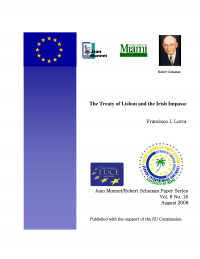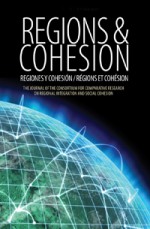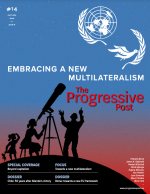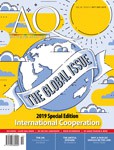The Lisbon Treaty and the Emergence of Third Generation Regional Integration

Especially in external relations, some major innovations would be introduced such as the legal personality for the EU, the new President of the European Council and the High Representative and Vice President of the Commission, assisted by an External Action Service. This article explores the implications of these new institutional developments for the emergence of the EU as a “third generation regional organization”, i.e. becoming a fullyfledged actor in international relations, engaging proactively and in a unitary way with other regions and at the multilateral level. To tackle this key issue, this paper is divided in two parts. The first part will look at the typology of three-generational regionalism and at how the EU fits into this scheme. The second part, focuses on the challenges for the EU’s foreign policy and looks at the external implications of the Lisbon treaty and, particularly, on its possible impact on the EU’s actorness in the UN. By doing so, the paper hopes also to shed some further light on the interrelation and possible synergies between regionalism studies and European studies in understanding the EU as an international actor. It will be argued that the Lisbon Treaty could constitute an institutional opportunity for the EU to develop into a more coherent and visible player on the international stage. This opportunity, however, is limited by the UN structure itself - which is still impervious to regional organisations - and by the ambiguities in the EU’s member states strategies and motivations. These ambiguities in turn, preserve the originality of the EU a new type of global actor, different from a state.








